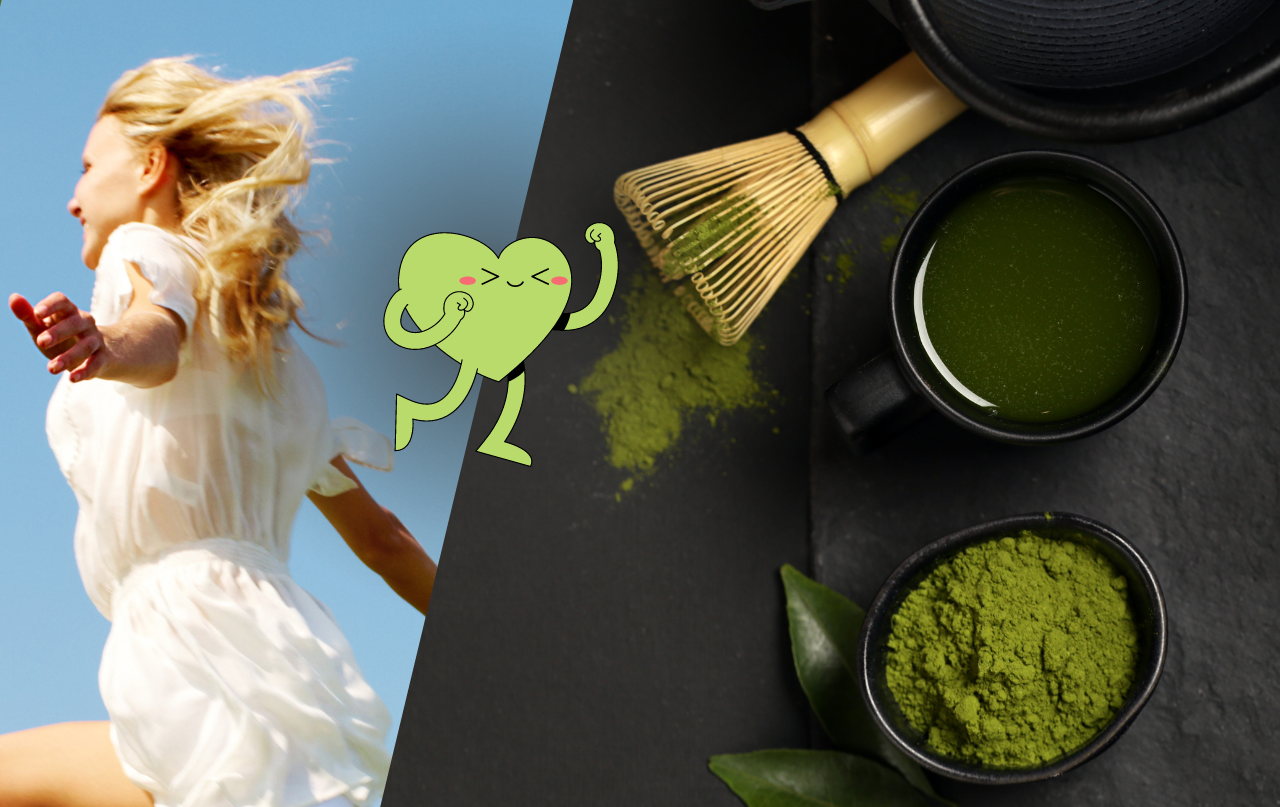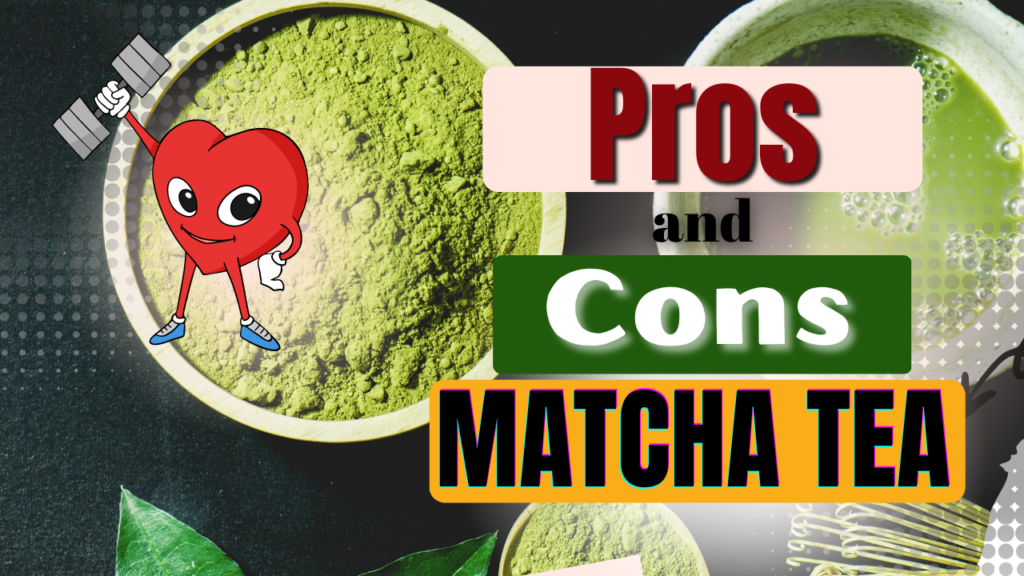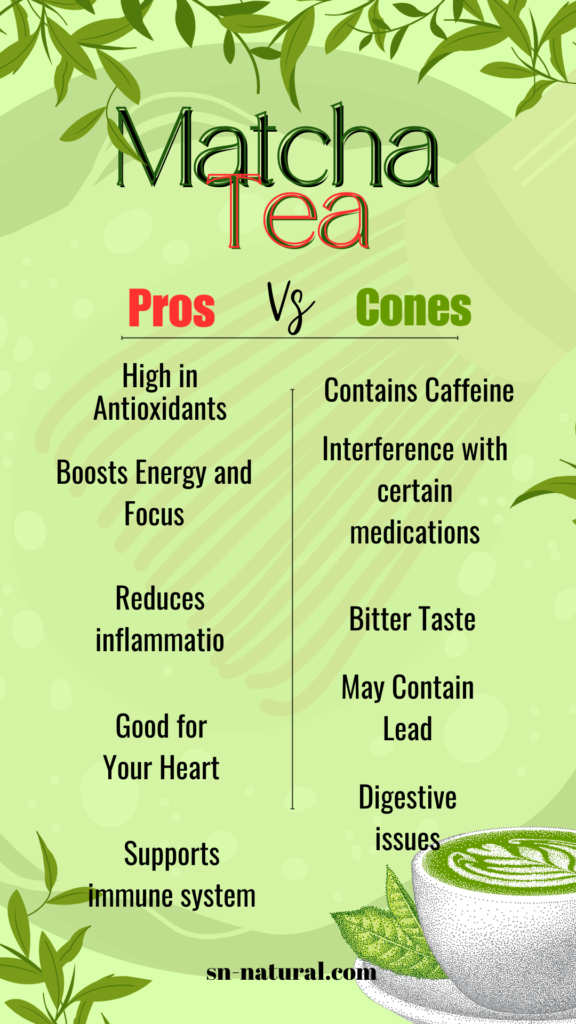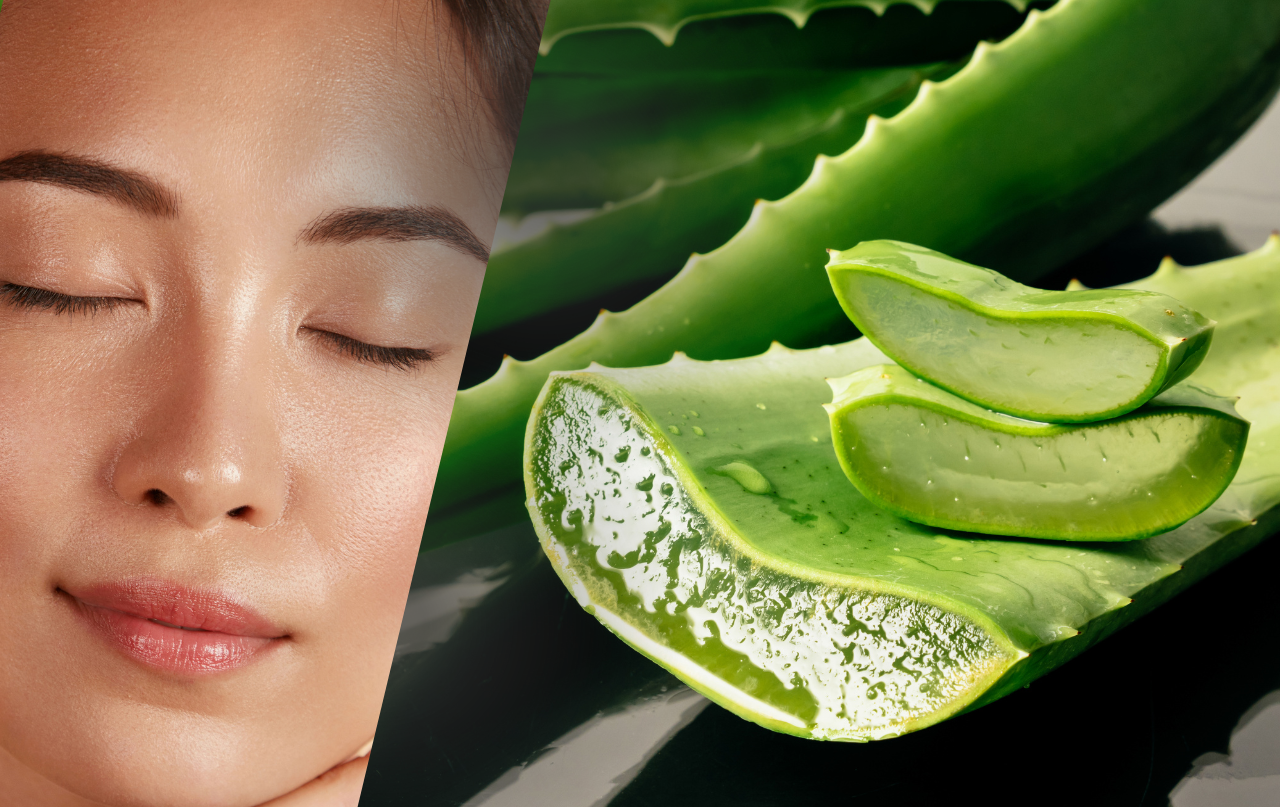As I sit here with a warm cup of matcha tea in my hand, I can’t help but reflect on the journey that led me to this moment. It all started years ago when I was struggling with an overall lack of focus, and because I am a big fan of tea my friend introduced me to the world of matcha tea.
At first, I was skeptical. But as soon as I took my first sip, I knew there was something special about this vibrant green elixir. Not only did it provide me with a boost of energy, but it also helped me feel focused and alert without the jitters or crashes I experienced with other caffeinated beverages.
What is Matcha Tea?
Before we dive into the pros and cons of matcha tea, let’s understand what it is. Matcha tea is made from shade-grown tea leaves that are ground into a fine powder. This powder is then mixed with hot water and whisked to create a frothy drink. Unlike other types of tea, when you drink matcha tea, you consume the entire tea leaf, which is why it is packed with nutrients.
The Pros of Drinking Matcha Tea
High in Antioxidants
Matcha tea is loaded with antioxidants, which protect your body against free radicals that can cause cell damage and chronic diseases. According to studies, matcha tea has more antioxidants than other superfoods like blueberries and spinach.
Boosts Energy and Focus
Matcha tea contains caffeine and L-theanine, an amino acid that promotes relaxation without drowsiness. This combination can increase alertness, improve cognitive function, and enhance mood.
Promotes Weight Loss
Matcha tea can help you lose weight by boosting your metabolism and burning fat. Studies show that drinking matcha tea can increase thermogenesis (the rate at which your body burns calories) by 8-10%.
Good for Your Heart
Matcha tea may reduce your risk of heart disease by lowering LDL cholesterol levels and improving blood pressure. The antioxidants in matcha tea also protect your heart from oxidative stress.
You may also view our video to see all of matcha tea’s health advantages.
How to Make the Perfect Cup of Matcha Tea
1.Choosing High-Quality Matcha Powder
Choosing the right matcha powder is crucial for making a perfect cup of matcha tea. As someone who’s tried many different brands, I can tell you that not all matcha powders are created equal. Look for a high-quality matcha powder that’s vibrant green in color and has a smooth, fine texture. Avoid matcha powders that are dull in color or contain added sugars or flavorings. Trust me, investing in a good quality matcha powder is worth it in the long run.
2.Proper Tools and Preparation
To make the perfect cup of matcha tea, you’ll need a few essential tools. Firstly, a matcha bowl or chawan, which is wider and deeper than a regular tea cup and helps with whisking the matcha powder. Secondly, a bamboo whisk or chasen, which is used to mix the matcha powder with hot water and create a frothy texture. Finally, a bamboo scoop or chashaku, which is used to measure the matcha powder.
Recipe for making matcha tea that will make you feel energized and refreshed:
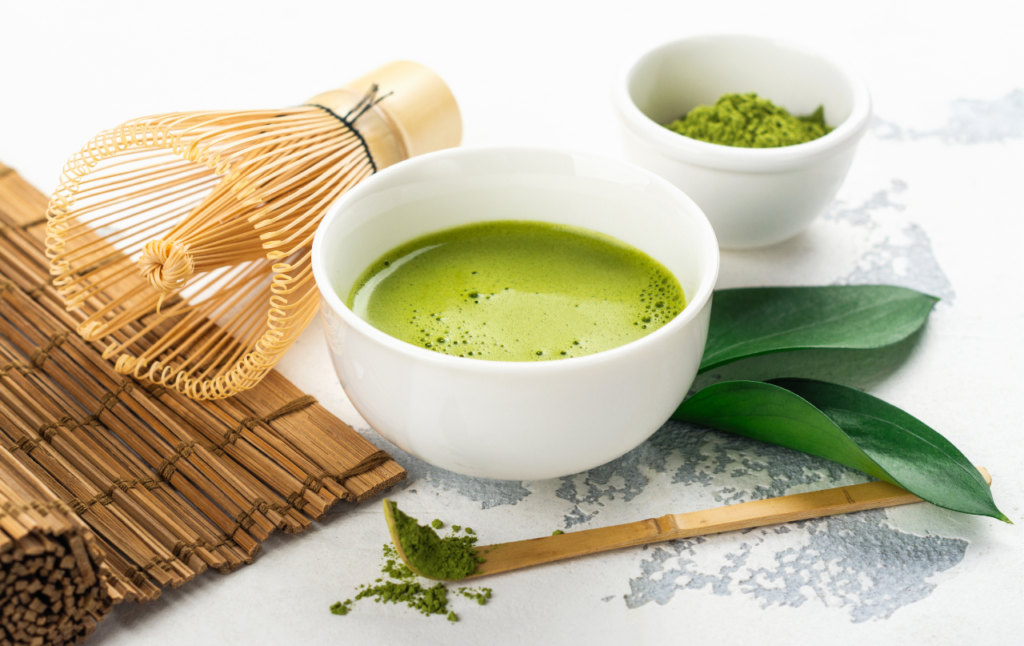
Ingredients:
- 1/2 teaspoon high-quality matcha powder
- 2 ounces of hot water
- Honey or agave syrup (optional)
Instructions:
- Boil water and let it cool down for a few minutes.
- Sift 1/2 teaspoon of matcha powder into a matcha bowl or any small bowl.
- Pour a bit of hot water into the bowl with the matcha powder.
- Use a bamboo whisk to whisk the matcha powder and hot water together until the mixture is frothy.
- Pour in the remaining water and whisk once more.
- If desired, add honey or agave syrup to taste.
- Use the whisk again to mix everything together until the mixture is smooth and frothy.
- Pour the matcha tea into your favorite mug or cup.
- Take a sip and savor the earthy and nutty flavors of the matcha tea.
Making matcha tea has become my daily ritual for achieving mental clarity, focus, and overall wellness. Give this recipe a try, and let matcha tea become your secret weapon for energy and focus throughout the day. You may try matcha latte for a smoother flavour.
Matcha Latte Recipe
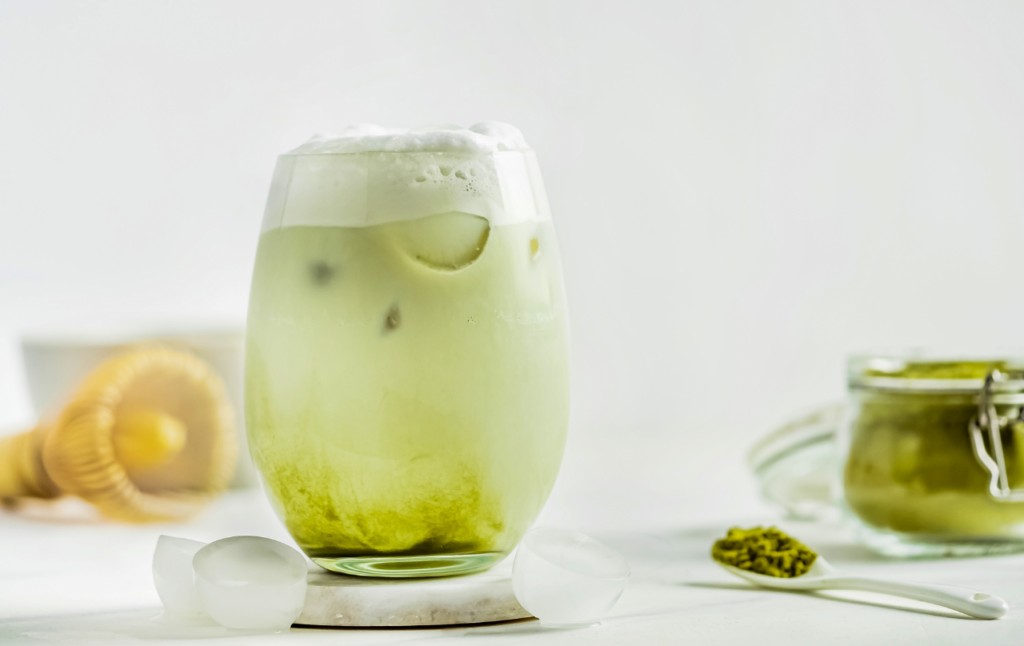
Ingredients:
- 1/2 tsp of high-quality matcha powder
- 1 cup of milk (dairy or non-dairy)
- 1-2 tsp of honey or sweetener of choice (optional)
Instructions:
- In a small bowl, whisk the matcha powder with a small amount of hot water until smooth and free of clumps.
- Heat the milk in a small saucepan over medium heat until it begins to steam.
- Pour the heated milk into the matcha mixture and whisk together until frothy and well combined.
- Add sweetener to taste, if desired.
- Pour into a mug and enjoy!
I hope you enjoy these matcha tea recipes as much as I do!
There are several other uses for matcha powder in daily life outside creating matcha tea. They all provide you with an energy boost.
Here are a few ideas:
- Matcha Smoothie: Add a spoonful of matcha powder to your favorite smoothie recipe for an added boost of antioxidants and flavor. It pairs particularly well with fruits like banana, mango, and pineapple.
- Matcha Latte: If you’re a fan of lattes, try making a matcha latte by whisking matcha powder into warm milk (dairy or non-dairy). Sweeten with honey or agave syrup for a delicious and comforting beverage.
- Matcha Baked Goods: Matcha powder can be used in baking to add a unique flavor and vibrant green color to your favorite recipes. Try adding it to muffins, cookies, or even cakes for a fun twist.
- Matcha Face Mask: Matcha powder is known for its antioxidant and anti-inflammatory properties, making it a great addition to your skincare routine. Mix a tablespoon of matcha powder with honey and apply to your face for a refreshing and revitalizing face mask.
- Matcha Ice Cream: If you have an ice cream maker, try making your own matcha ice cream by whisking matcha powder into a custard base before churning. The result is a creamy and refreshing dessert with a subtle green tea flavor.
Overall, matcha powder is a versatile ingredient that can be used in many different ways to add flavor and nutrition to your daily routine.
The Cons of Drinking Matcha Tea
Contains Caffeine
Matcha tea contains caffeine, which can cause jitters, anxiety, and sleep problems if consumed in excess. It is important to monitor your caffeine intake and limit it to a moderate amount.
Expensive
Matcha tea can be expensive compared to other types of tea. This is because it is made from high-quality tea leaves that are hand-picked and processed.
Bitter Taste
Matcha tea has a bitter taste, which can be an acquired taste for some people. To make it more palatable, you can mix it with milk or sweeteners.
May Contain Lead
Some matcha tea brands may contain lead, which can be harmful to your health. To avoid lead exposure, make sure to buy matcha tea from reputable brands and check their quality standards.
Conclusion
Matcha tea can help with a variety of health issues, from improving heart health and lowering inflammation to enhancing brain sharpness and metabolism. However, it’s critical to be aware of any potential drawbacks, including caffeine sensitivity, digestive problems, and a high lead content danger.
You may take advantage of matcha’s many health benefits while lowering the dangers by drinking it occasionally and being aware of any potential interactions with medications. Before include matcha tea in your diet, it’s always a good idea to speak with your doctor, especially when you have any pre-existing medical issues or are on any prescription drugs.
FAQs
It is Matcha Tea Safe for Children?
1. While matcha tea is generally safe for adults, it is not recommended for children due to its high caffeine content. Children may be more sensitive to the effects of caffeine, which can lead to sleep disturbances, anxiety, and other issues.How Much Matcha Tea
Should I Drink Each Day?
2. It is recommended to consume no more than 2 cups of matcha tea per day, as it is high in caffeine and can cause negative side effects in large quantities. Additionally, it is important to listen to your body and adjust your intake accordingly.
Can Matcha Tea Help with Weight Loss?
3. Matcha tea has been shown to aid in weight loss by boosting metabolism and increasing the body’s ability to burn fat. However, it should not be relied upon as a sole method of weight loss and should be combined with a healthy diet and exercise.
How Long Does the Energy Boost from Matcha Tea Last?
4. The energy boost from matcha tea typically lasts around 3-6 hours, depending on the individual and their sensitivity to caffeine. It is important to note that the effects of matcha tea may vary and can be influenced by factors such as diet, hydration, and sleep.
Where Can I Buy High-Quality Matcha Tea?
5. High-quality matcha tea can be found at specialty tea shops, health food stores, and online retailers. Look for matcha tea that is made from high-quality leaves, is vibrant green in color, and has a smooth, slightly sweet taste. It is important to read reviews and purchase from a reputable source to ensure quality.

